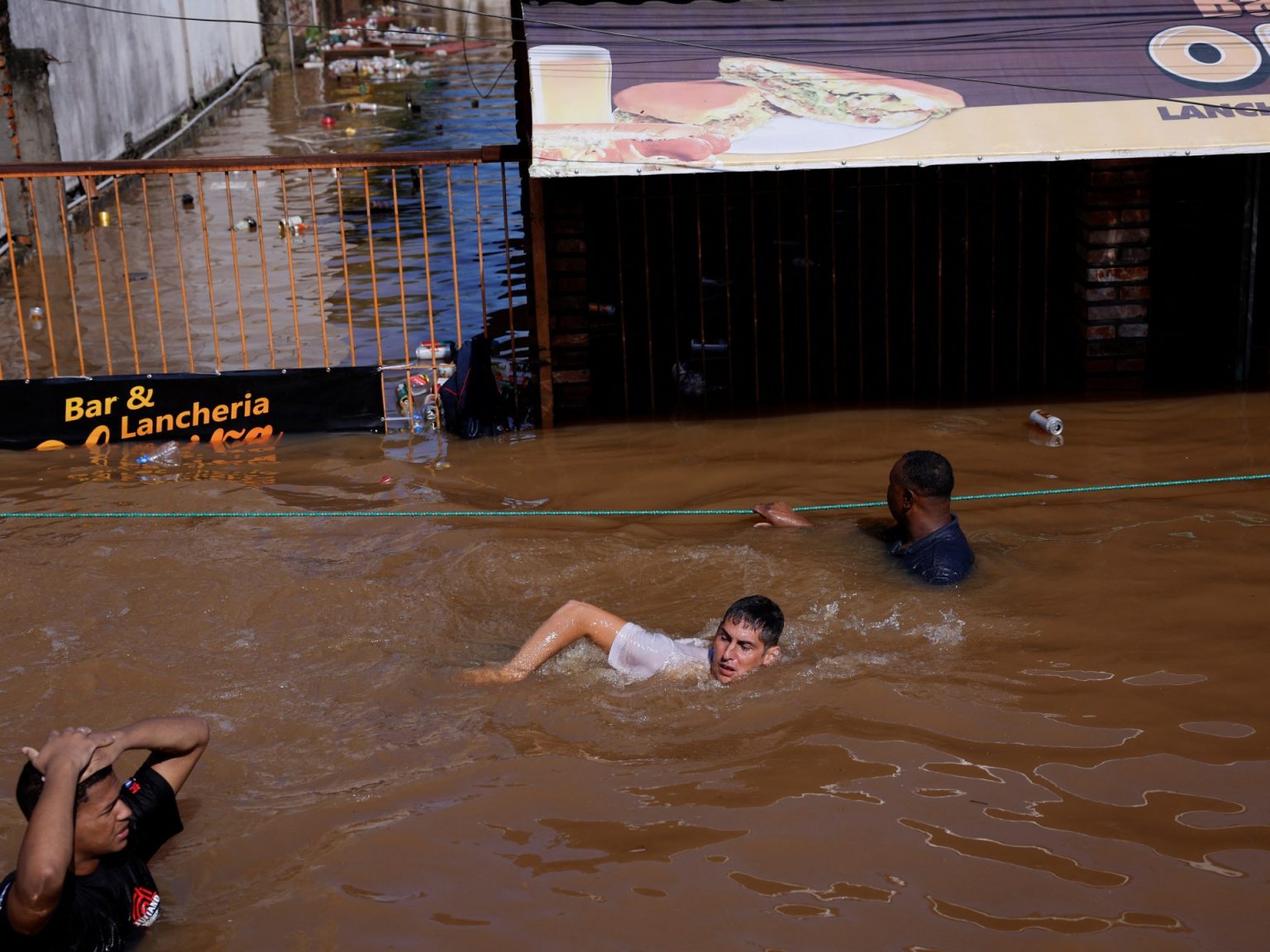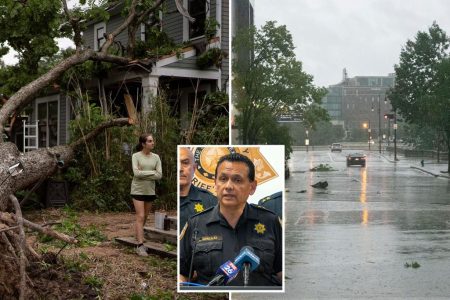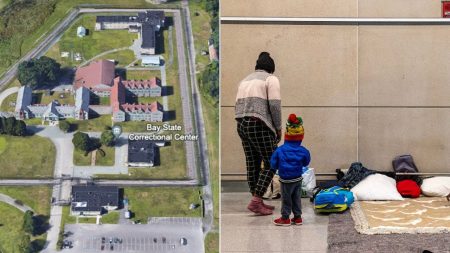Massive floods in Brazil’s southern Rio Grande do Sul state have caused devastation, with at least 75 people dead and 103 missing, according to local authorities. The floods have also forced more than 88,000 people from their homes, with approximately 16,000 seeking refuge in temporary shelters. The damage from the rains has resulted in landslides, washed-out roads, collapsed bridges, and interruptions in electricity and communications. More than 800,000 people are without a water supply, highlighting the severity of the situation.
State Governor Eduardo Leite described the devastation as unprecedented and stated that the state would require a significant rebuilding effort. Brazilian President Luiz Inacio Lula da Silva visited the impacted areas accompanied by other government officials, emphasizing the need for proactive measures to prevent further disasters. The Guaiba River reached record levels, surpassing those seen during a historic deluge in 1941, indicating the severity of the flooding. Pope Francis offered prayers for the population of Rio Grande do Sul during a Sunday mass at the Vatican.
The heavy rains in Rio Grande do Sul were the fourth environmental disaster in the state within a year, following previous floods that resulted in fatalities. The recurring natural disasters are linked to the climate phenomenon El Nino, which has caused intense rainfall in the southern region of Brazil. Scientists have attributed the worsening impact of extreme weather events to human-induced climate change, emphasizing the need for adaptation measures to address the challenges posed by changing weather patterns.
The state of Rio Grande do Sul is facing unprecedented challenges as a result of the ongoing floods, with significant damage to infrastructure, loss of life, and displacement of thousands of residents. The situation has sparked calls for a coordinated response to address the immediate needs of those affected and to implement long-term strategies to mitigate future disasters. The impacts of climate change, exacerbated by events such as El Nino, highlight the urgency of developing sustainable solutions to protect vulnerable communities and ecosystems.
Efforts to rebuild and restore the affected areas will require a multi-faceted approach, involving government agencies, humanitarian organizations, and local communities. Investments in infrastructure, early warning systems, and disaster preparedness will be essential in reducing the risks associated with extreme weather events. Climate experts warn that without decisive action to address the root causes of environmental degradation, similar tragedies will continue to occur with increasing frequency and intensity in the future. As countries like Brazil grapple with the impacts of climate change, adaptation and resilience-building efforts will be critical in safeguarding the well-being of their populations and ecosystems.















